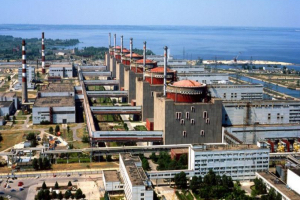
Washington/Vienna/Kyiv: The President of the United States of America Joe Biden today spoke with President Emmanuel Macron of France, Chancellor Olaf Scholz of Germany, and Prime Minister Boris Johnson of the United Kingdom and discussed the situation at the Zaporizhzhia Nuclear Power Plant, including the need to avoid military operations near the plant and the importance of an International Atomic Energy Agency (IAEA) visit as soon as feasible to ascertain the state of safety systems.
The IAEA has not been able to visit the ZNPP since before the conflict began half a year ago. Since early March 2022, it has been controlled by Russian forces, but the Ukrainian staff are continuing to operate the plant.
Ukraine’s Regional Military Administrations stated that in the last 24 hours, Russian troops shelled the Zaporizhzhya region along with Sumy, the Mykolaiv, the Kharkiv, the Dnipropetrovsk, the Donetsk, and the Luhansk regions. 3 people were killed. 8 citizens were injured.
Today’s discussion between Biden and the other three leaders assumes significance in the light of the “urgent appeal” made by the Director General of the International Atomic Energy Agency (IAEA), Rafael Mariano Grossi, on August 19, 2022, for maximum military restraint in the area of Ukraine’s Zaporizhzhia Nuclear Power Plant (ZNPP) following new signs of rising tension over Europe’s largest nuclear facility.
Just over a week after he briefed the United Nations Security Council on the worsening nuclear safety and security situation at the ZNPP, Grossi warned that any further escalation related to the six-reactor plant could lead to a severe nuclear accident with potentially grave consequences for human health and the environment in Ukraine and elsewhere.
The Director General made his appeal in response to information received by the IAEA in recent days indicating possible new nuclear safety and security risks related to the ZNPP, less than two weeks after shelling caused some damage at the plant, including impacting response activities in case of an emergency, that sparked widespread alarm about the situation there.
“In this highly volatile and fragile situation, it is of vital importance that no new action is taken that could further endanger the safety and security of one of the world’s largest nuclear power plants,”Grossi said.
“There is an urgent need to lower the tension and take the necessary steps to help ensure nuclear safety and security and prevent any radiological consequences for the population and the environment. The IAEA can play an indispensable role in this regard,” he said.
In view of the serious situation, the Director General reiterated the need to send an IAEA mission to carry out essential safety, security and safeguards activities at the site in southern Ukraine.
Significantly, both Ukraine and Russia supported the IAEA’s aim to send a mission to ZNPP.
In fact on August 19, 2022, during a telephonic conversation with Macron, Russian President Vladimir Putin in particular, stressed that it was the Ukrainian military which was regularly striking the Zaporizhzhia Nuclear Power Plant and creating the danger of a major nuclear disaster that could lead to radiation contamination of vast territories.
Both Macron and Putin had then noted the importance of sending an IAEA mission to the power plant as soon as possible to allow experts to assess the situation on the ground. The Russian side confirmed its readiness to provide the necessary assistance to the agency’s inspectors.
The USA has frequently raised its concern about ongoing military operations at or near Ukraine’s nuclear facilities and has repeatedly called on Russia to return full control of the Zaporizhzhia Nuclear Power Plant to Ukraine.
The G7 nations too had earlier issued a statement reiterating the need for Russia to hand back control of the plant to Ukraine.
– global bihari bureau





